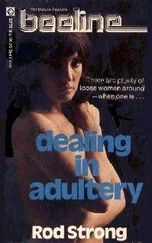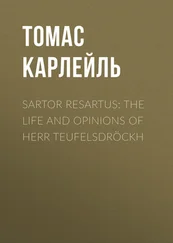Vladimir Nabokov - Strong opinions
Здесь есть возможность читать онлайн «Vladimir Nabokov - Strong opinions» весь текст электронной книги совершенно бесплатно (целиком полную версию без сокращений). В некоторых случаях можно слушать аудио, скачать через торрент в формате fb2 и присутствует краткое содержание. Город: New York, Год выпуска: 1990, Издательство: First Vintage International Edition, Жанр: Классическая проза, на английском языке. Описание произведения, (предисловие) а так же отзывы посетителей доступны на портале библиотеки ЛибКат.
- Название:Strong opinions
- Автор:
- Издательство:First Vintage International Edition
- Жанр:
- Год:1990
- Город:New York
- ISBN:нет данных
- Рейтинг книги:4 / 5. Голосов: 1
-
Избранное:Добавить в избранное
- Отзывы:
-
Ваша оценка:
- 80
- 1
- 2
- 3
- 4
- 5
Strong opinions: краткое содержание, описание и аннотация
Предлагаем к чтению аннотацию, описание, краткое содержание или предисловие (зависит от того, что написал сам автор книги «Strong opinions»). Если вы не нашли необходимую информацию о книге — напишите в комментариях, мы постараемся отыскать её.
Strong opinions — читать онлайн бесплатно полную книгу (весь текст) целиком
Ниже представлен текст книги, разбитый по страницам. Система сохранения места последней прочитанной страницы, позволяет с удобством читать онлайн бесплатно книгу «Strong opinions», без необходимости каждый раз заново искать на чём Вы остановились. Поставьте закладку, и сможете в любой момент перейти на страницу, на которой закончили чтение.
Интервал:
Закладка:
The enthusiasm, concentration, and unusual manifestation of the mental faculties (umstvennyb sil).
Dal, Revised Ed., St. Petersburg, 1904
A creative upsurge. [Examples:] Inspired poet. Inspired socialistic work.
Ozhegov, Russian dictionary, Moscow, 1960
A special study, which I do not plan to conduct, would reveal, probably, that inspiration is seldom dwelt upon nowadays even by the worst reviewers of our best prose. I say «our» and I say «prose» because I am thinking of American works of fiction, including my own stuff. It would seem that this reticence is somehow linked up with a sense of decorum. Conformists suspect that to speak of «inspiration» is as tasteless and old-fashioned as to stand up for the Ivory Tower. Yet inspiration exists as do towers and tusks.
One can distinguish several types of inspiration, which intergrade, as all things do in this fluid and interesting world of ours, while yielding gracefully to a semblance of classification. A prefatory glow, not unlike some benign variety of the aura before an epileptic attack, is something the artist learns to perceive very early in life. This feeling of tickly wellbeing branches through him like the red and the blue in the picture of a skinned man under Circulation. As it spreads, it banishes all awareness of physical discomfort — youth's toothache as well as the neuralgia of old age. The beauty of it is that, while completely intelligible (as if it were connected with a known gland or led to an expected climax), it has neither source nor object. It expands, glows, and subsides without revealing its secret. In the meantime, however, a window has opened, an auroral wind has blown, every exposed nerve has tingled. Presently all dissolves: the familiar worries are back and the eyebrow redescribes its arc of pain; but the artist knows he is ready.
A few days elapse. The next stage of inspiration is something ardently anticipated — and no longer anonymous. The shape of the new impact is indeed so definite that I am forced to relinquish metaphors and resort to specific terms. The narrator forefeels what he is going to tell. The forefeeling can be defined as an instant vision turning into rapid speech. If some instrument were to render this rare and delightful phenomenon, the image would come as a shimmer of exact details, and the verbal part as a tumble of merging words. The experienced writer immediately takes it down and, in the process of doing so, transforms what is little more than a running blur into gradually dawning sense, with epithets and sentence construction growing as clear and trim as they would be on the printed page:
Sea crashing, retreating with shuffle of pebbles, Juan and beloved young whore — is her name, as they say, Adora? is she Italian, Roumanian, Irish? — asleep in his lap, his opera cloak pulled over her, candle messily burning in its tin cup, next to it a paperwrapped bunch of long roses, his silk hat on the stone floor near a patch of moonlight, all this in a corner of a decrepit, once palatial whorehouse, Villa Venus, on a rocky Mediterranean coast, a door standing ajar gives on what seems to be a moonlit gallery but is really a half-demolished reception room with a broken outer wall, through a great rip in tt the naked sea is heard as a panting space separated from time, it dully booms, dully withdraws dragging its platter of wet pebbles.
This I jotted down one morning at the very end of 1965, a couple of months before the novel began to flow. What I give above is its first throb, the strange nucleus of the book that was to grow around it in the course of the next three years. Much of that growth obviously differs in coloration and lighting from the foreglimpsed scene, whose structural centrality, however, is emphasized, with a kind of pleasing neatness, by the fact that it now exists as an insetscene right in the middle of the novel (which was entitled at first Villa Venus, then The Veens, then Ardor, and finally Ada.
Reverting to a more generalized account, one sees inspiration accompanying the author in his actual work at the new book. She accompanies him (for by now we are at presence of a nubile muse) by means of successive flashes to which the writer may grow so accustomed that a sudden fizzle in the domestic illumination may strike him as an act of betrayal.
One and the same person can compose parts of one and the same story or poem, either in his head or on paper, pencil or pen in hand (I am told there exist fantastic performers who actually type out their immediate product or, still more incredibly, dictate it, warm and bubbly, to a typist or to a machine!). Some prefer the bathtub to the study and the bed to the windy moor — the place does not matter much, it is the relationship between the brain and the (hand that poses some odd problems. As John Shade says somewhere: «I am puzzled by the difference between two methods of composing: A, the kind which goes on solely in the poet's mind, a testing of performing words, while he is soaping a third time one leg, and B, the other kind, milch more decorous, when he's in his study writing with a pen.
In method B the hand supports the thought, the abstract battle is concretely fought. The pen stops in midair, then swoops to bar a canceled sunset or restore a star thus it physically guides the phrase toward faint daylight through the inky maze. But method A is agony! The pain is soon enclosed in a steel cap of pain. A muse in overalls directs the rill which grinds, and which no effort Mil can interrupt, while the automaton is taking off has just put on or walking briskly to the corner store to buy the paper he has read before. Why is it so? Is it, is because in penless work there is no pen-poised pause.
Or is the process deeper, with no desk to propse and hoist the picturesque? For there are those lous moments when, too weary to delete, I drop my 'ambulate — and by some mute command the right on my hand.
This is, of course, where inspiration comes in. The words which on various occasions, during some fifty years of composing prose, I have put together and then canceled may have formed by now in the Realm of Rejection (a foggy but not quite unlikely land north of nowhere) a huge library of scrapped phrases, characterized and concorded only by their wanting the benison of inspiration.
No wonder, then, that a writer who is not afraid to confess that he has known inspiration and can readily distinguish it from the froth of a fit, as well as from the humdrum comfort of the «right word», should seek the bright trace of that thrill in the work of fellow authors. The bolt of inspiration strikes invariably: you observe the flash in this or that piece of great writing, be it a stretch of fine verse, or a passage in Joyce or Tolstoy, or a phrase in a short story, or a spurt of genius in the paper of a naturalist, of a scholar, or even in a book reviewer's article. I have in view, naturally, not the hopeless hacks we all know — but people who are creative artists in their own right, such as, say, Trilling (with his critical opinions I am not concerned), or Thurber (e.g. in Voices of Revolution. «Art does not rush to the barricades»).
In recent years numerous publishers have had the pleasure of sending me their anthologies — homing pigeons really, for all of them contain samples of the recipient's writings. Amongst the thirty or so of those collections, some flaunt pretentious labels («Fables of Our Time» or «Themes and Targets»); others are presented more soberly («Great Tales») and their blurbs promise the reader that he will meet cranberry pickers and hunkies; but almost in each of them there are at least two or three first-rate stories.
Age is chary, but it is also forgetful, and in order to choose instantly what to reread on a night of Orphic thirst and what to reject for ever, I am careful to put an A, or a C, or a D-minus, against this or that item in the anthology. The profusion of high marks reconfirms me every time in the exhilarating belief that at the present time (say, for the last fifty years) the greatest short stories have been produced not in England, not in Russia, and certainly not in France, but in this country.
Читать дальшеИнтервал:
Закладка:
Похожие книги на «Strong opinions»
Представляем Вашему вниманию похожие книги на «Strong opinions» списком для выбора. Мы отобрали схожую по названию и смыслу литературу в надежде предоставить читателям больше вариантов отыскать новые, интересные, ещё непрочитанные произведения.
Обсуждение, отзывы о книге «Strong opinions» и просто собственные мнения читателей. Оставьте ваши комментарии, напишите, что Вы думаете о произведении, его смысле или главных героях. Укажите что конкретно понравилось, а что нет, и почему Вы так считаете.










